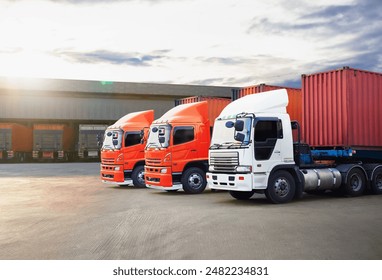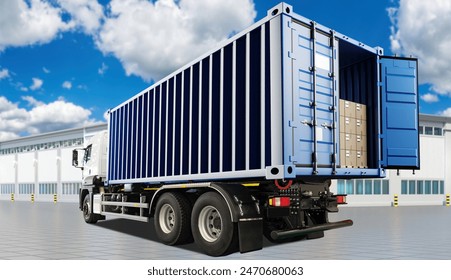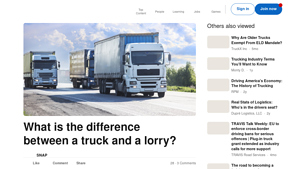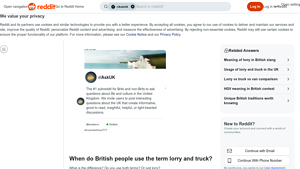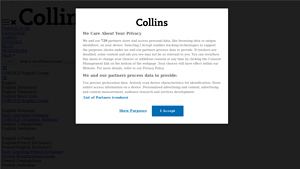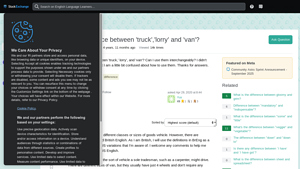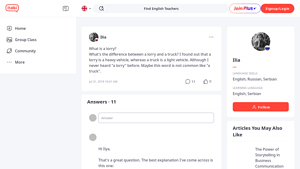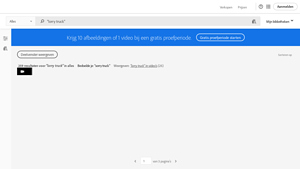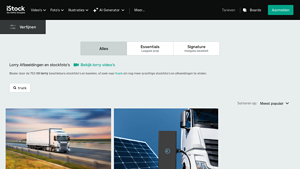Introduction: Navigating the Global Market for lorry Truck
In today’s rapidly evolving global market, sourcing the right lorry truck can pose significant challenges for international B2B buyers. The complexities of selecting a vehicle that meets specific operational needs while ensuring compliance with regional regulations can be daunting. This guide serves as a comprehensive resource, covering various types of lorries, their applications, key considerations for supplier vetting, cost factors, and maintenance requirements.
By delving into the nuances of lorry trucks, including the distinctions between articulated lorries and rigid models, buyers from regions such as Africa, South America, the Middle East, and Europe—including countries like Brazil and Germany—will be equipped with actionable insights. The information presented here empowers you to make informed purchasing decisions, ensuring that you choose a vehicle that not only fits your logistical demands but also aligns with your budget and operational efficiency.
Navigating the global market for lorry trucks requires a strategic approach, and this guide is designed to facilitate that journey. Whether you are expanding your fleet or entering the market for the first time, understanding the critical aspects of lorry procurement will enhance your competitive edge and drive your business forward.
Understanding lorry Truck Types and Variations
| Type Name | Key Distinguishing Features | Primary B2B Applications | Brief Pros & Cons for Buyers |
|---|---|---|---|
| Articulated Lorry | Separate cab and trailer, often used for long-haul transport | Freight delivery, logistics, and distribution | Pros: High capacity, versatile; Cons: Requires skilled drivers, may need specialized training. |
| Flatbed Lorry | Open cargo area, no sides, suitable for oversized loads | Construction materials, machinery transport | Pros: Easy loading/unloading; Cons: Limited protection from elements, may require tarping. |
| Refrigerated Lorry | Insulated cargo area with refrigeration capabilities | Perishable goods, pharmaceuticals | Pros: Maintains temperature control; Cons: Higher maintenance costs, limited to temperature-sensitive goods. |
| Tipper Lorry | Hydraulic tipping mechanism for unloading | Construction sites, bulk material transport | Pros: Efficient unloading; Cons: Limited to loose materials, may require more space to operate. |
| Box Lorry | Enclosed cargo area, typically with a rear door | General freight, courier services | Pros: Protects cargo from elements; Cons: Limited access, may require additional loading equipment. |
What are the Characteristics and Suitability of Articulated Lorries?
Articulated lorries are recognized for their separate cab and trailer design, allowing for greater maneuverability and flexibility in transporting diverse cargo types. Typically used in long-haul applications, they can accommodate heavy and bulky loads, making them ideal for logistics companies and freight carriers. When considering an articulated lorry, buyers should evaluate the total weight capacity, compatibility with various trailers, and the driving skills required for efficient operation.
How Do Flatbed Lorries Serve B2B Needs?
Flatbed lorries are characterized by their open cargo area, making them exceptionally versatile for transporting oversized items like construction materials and machinery. Their design facilitates easy loading and unloading, which is crucial for businesses in the construction and manufacturing sectors. Buyers should consider the types of loads they frequently transport and whether they need additional equipment for securing loads against movement during transit.
Why Choose Refrigerated Lorries for Temperature-Sensitive Goods?
Refrigerated lorries, equipped with advanced insulation and cooling systems, are essential for transporting perishable goods and pharmaceuticals. They ensure that products remain within specified temperature ranges during transit, which is vital for compliance with health regulations. Buyers should assess the refrigeration technology, energy efficiency, and maintenance requirements to ensure the lorry meets their operational needs while minimizing costs.
What Advantages Do Tipper Lorries Offer in Construction?
Tipper lorries are designed with a hydraulic tipping mechanism, allowing for quick and efficient unloading of loose materials such as gravel, sand, or demolition debris. Their primary applications are within the construction and mining industries, where time and efficiency are critical. Buyers should consider the lorry’s payload capacity, the hydraulic system’s reliability, and the terrain where the vehicle will operate to ensure it meets project demands.
How Do Box Lorries Provide Protection for Cargo?
Box lorries feature an enclosed cargo area that protects goods from environmental factors, making them suitable for general freight and courier services. Their design is advantageous for businesses that require reliable delivery of sensitive items. When purchasing a box lorry, buyers should evaluate the interior dimensions, access points, and loading mechanisms to ensure it aligns with their operational requirements and enhances overall efficiency.
Key Industrial Applications of lorry Truck
| Industry/Sector | Specific Application of lorry Truck | Value/Benefit for the Business | Key Sourcing Considerations for this Application |
|---|---|---|---|
| Logistics & Supply Chain | Last-mile delivery of goods | Increased efficiency in urban distribution | Vehicle size, payload capacity, fuel efficiency |
| Construction | Transport of heavy machinery and building materials | Reduced downtime in project timelines | Load capacity, durability, and roadworthiness |
| Agriculture | Transport of produce and livestock | Enhanced freshness and reduced spoilage | Temperature control features, cargo space, and reliability |
| Retail | Delivery of bulk goods to retail outlets | Improved inventory turnover and customer satisfaction | Vehicle accessibility, reliability, and delivery speed |
| Mining | Hauling minerals and equipment to and from sites | Cost-effective transport in remote locations | Terrain capability, load capacity, and maintenance support |
How is a Lorry Truck Utilized in the Logistics & Supply Chain Sector?
In the logistics and supply chain sector, lorry trucks are crucial for last-mile delivery, particularly in urban areas where navigating narrow streets and tight spaces is essential. They enable businesses to efficiently transport goods directly to consumers or retail locations, minimizing delays and enhancing customer satisfaction. Buyers in this sector should consider the size of the vehicle, payload capacity, and fuel efficiency to optimize delivery routes and costs, especially in regions like Africa and South America, where road conditions may vary significantly.
What Role Do Lorry Trucks Play in Construction Transportation?
Lorry trucks are indispensable in the construction industry for transporting heavy machinery, tools, and building materials to job sites. Their ability to carry substantial loads helps reduce downtime and keeps projects on schedule. Buyers should focus on the vehicle’s load capacity, durability, and roadworthiness to ensure they can handle the demands of construction environments, particularly in remote areas of the Middle East and Africa, where infrastructure may be less developed.
How Are Lorry Trucks Beneficial for Agricultural Transport?
In agriculture, lorry trucks are utilized for transporting fresh produce and livestock, ensuring that goods reach their destinations while still fresh. This capability is vital in reducing spoilage and maintaining quality, which is crucial for market competitiveness. Buyers should look for vehicles with temperature control features, ample cargo space, and reliability to withstand the rigors of agricultural transport, especially in regions such as South America where agricultural production is significant.
Why Are Lorry Trucks Important for Retail Deliveries?
Retail businesses depend on lorry trucks for the efficient delivery of bulk goods to their outlets. The timely arrival of products is essential for maintaining inventory levels and ensuring customer satisfaction. When sourcing lorries for retail applications, businesses should prioritize vehicle accessibility, reliability, and delivery speed to meet consumer demands, particularly in urban centers across Europe and Africa where competition is high.
What Is the Significance of Lorry Trucks in the Mining Sector?
In the mining industry, lorry trucks are employed to haul minerals and equipment to and from extraction sites. Their robust design allows them to operate effectively in remote locations where road conditions can be challenging. Buyers in this sector should consider the terrain capability, load capacity, and ongoing maintenance support to ensure efficient operations, especially in the mining regions of South America and Africa, where logistics can be complex.
3 Common User Pain Points for ‘lorry Truck’ & Their Solutions
Scenario 1: Navigating Regulatory Compliance for Lorry Trucks in Different Markets
The Problem: International B2B buyers often face significant challenges regarding regulatory compliance when sourcing lorry trucks. Different countries have unique regulations concerning emissions, safety standards, and vehicle specifications. For instance, a buyer in Germany might struggle to understand the stringent EU regulations on emissions while a buyer in Brazil may be more concerned with the local requirements for vehicle weight and load capacity. This lack of clarity can lead to costly delays, fines, or even the inability to operate the vehicles in certain markets.
The Solution: To effectively navigate these regulatory landscapes, buyers should conduct thorough research on the specific compliance requirements of each target market. Engaging with local transport authorities or industry associations can provide valuable insights into necessary certifications and standards. Additionally, it’s advisable to collaborate with a reputable local dealer or logistics consultant who understands the regional regulatory framework. This partnership can help ensure that the lorry trucks sourced not only meet the required specifications but also provide long-term operational efficiency within legal guidelines.
Scenario 2: Optimizing Lorry Truck Efficiency for Diverse Cargo Needs
The Problem: Many businesses encounter difficulties in optimizing their lorry truck fleet to handle a variety of cargo types. For instance, a construction company might need to transport heavy equipment one day and delicate materials the next. Using a one-size-fits-all approach can lead to inefficiencies, such as increased fuel consumption or vehicle wear and tear, ultimately affecting the bottom line.
The Solution: B2B buyers should invest in a diverse fleet of lorry trucks tailored to specific cargo requirements. This involves conducting a detailed analysis of the types of goods transported and their specific handling needs. For example, opting for flatbed lorries for heavy machinery while utilizing enclosed lorries for sensitive materials can enhance efficiency. Additionally, incorporating technology such as telematics can provide real-time data on fuel consumption and load capacity, allowing businesses to adjust their logistics strategies proactively. Regular training for drivers on best practices for handling different types of cargo can further ensure safety and efficiency.
Scenario 3: Managing Maintenance and Downtime Costs for Lorry Trucks
The Problem: Maintenance and downtime are critical pain points for B2B buyers operating lorry trucks. Unexpected breakdowns can lead to delays in deliveries, increased repair costs, and ultimately dissatisfied customers. Buyers may find it challenging to balance the costs of regular maintenance with the need to minimize operational downtime, which can significantly affect profit margins.
The Solution: Implementing a proactive maintenance strategy is essential to minimize downtime and repair costs. Buyers should establish a comprehensive maintenance schedule that includes regular inspections, preventive maintenance, and timely servicing of lorry trucks. Utilizing fleet management software can help monitor vehicle health, schedule maintenance, and track repair histories efficiently. Moreover, creating partnerships with reliable local mechanics or service centers can ensure quick response times for repairs. Investing in high-quality, durable lorry trucks from reputable manufacturers can also reduce long-term maintenance issues, enhancing overall operational efficiency. Regularly reviewing and analyzing maintenance data will allow businesses to identify trends and potential issues before they escalate, ensuring the fleet remains operational and cost-effective.
Strategic Material Selection Guide for lorry Truck
What Materials Are Commonly Used in Lorry Truck Manufacturing?
When selecting materials for lorry trucks, buyers must consider various factors including performance characteristics, cost, and regional compliance standards. Here, we analyze four common materials used in the manufacturing of lorry trucks: steel, aluminum, composite materials, and fiberglass. Each material has unique properties and implications for performance and application.
How Does Steel Perform in Lorry Truck Applications?
Steel is the most widely used material in lorry truck construction, particularly for the chassis and structural components. Its high tensile strength allows it to withstand heavy loads and impacts, making it ideal for demanding transport conditions. Steel also offers excellent corrosion resistance when treated, which is crucial for trucks operating in diverse climates.
Pros: Steel is durable and cost-effective, with a relatively straightforward manufacturing process. It can be easily welded and fabricated, allowing for versatile designs.
Cons: The weight of steel can be a disadvantage, leading to reduced fuel efficiency. Additionally, untreated steel is susceptible to rust, which can affect longevity.
Impact on Application: Steel is compatible with a wide range of media, including fuel and lubricants, but its weight may limit payload capacity.
Considerations for International Buyers: Compliance with international standards such as ASTM A36 or DIN 17100 is essential. Buyers from regions like Africa and South America should also consider local availability and cost variations.
What Are the Advantages of Aluminum in Lorry Truck Manufacturing?
Aluminum has gained popularity in lorry truck manufacturing due to its lightweight nature, which enhances fuel efficiency and payload capacity. It is particularly beneficial for components such as body panels and trailers.
Pros: Aluminum is resistant to corrosion, reducing maintenance costs and extending the truck’s lifespan. Its lightweight property allows for higher payloads without exceeding weight limits.
Cons: The primary drawback of aluminum is its higher cost compared to steel. Additionally, aluminum requires specialized welding techniques, which can complicate manufacturing.
Impact on Application: Aluminum is suitable for transporting a variety of goods, but its lower strength compared to steel may limit its use in heavy-duty applications.
Considerations for International Buyers: Buyers should ensure compliance with standards like ASTM B209. In Europe, EN 573-3 is relevant. Understanding local recycling policies can also influence material choice.
How Do Composite Materials Benefit Lorry Truck Design?
Composite materials, such as fiberglass-reinforced plastics, are increasingly used in lorry truck manufacturing for their lightweight and high-strength properties. These materials are often employed in body panels and interior components.
Pros: Composites offer excellent corrosion resistance and can be molded into complex shapes, allowing for innovative designs. They also provide thermal insulation properties.
Cons: The manufacturing process for composites can be complex and costly, which may deter some manufacturers. Additionally, repair processes can be more challenging compared to metals.
Impact on Application: Composites are suitable for transporting sensitive goods due to their insulating properties, but they may not be suitable for heavy-duty structural applications.
Considerations for International Buyers: Buyers should verify compliance with standards such as ASTM D638 for tensile properties. Familiarity with local manufacturing capabilities is crucial, especially in emerging markets.
Why Is Fiberglass a Viable Option for Lorry Trucks?
Fiberglass is a type of composite material that is lightweight and offers excellent resistance to corrosion and environmental factors. It is commonly used for truck bodies and trailers.
Pros: Fiberglass is durable and requires minimal maintenance, making it cost-effective over time. Its lightweight nature contributes to better fuel efficiency.
Cons: Fiberglass can be more expensive than traditional materials and may not provide the same structural integrity as steel or aluminum in heavy-duty applications.
Impact on Application: Fiberglass is ideal for transporting goods that require protection from the elements, but its strength limitations may restrict its use in high-load scenarios.
Considerations for International Buyers: Compliance with standards such as ASTM D256 for impact resistance is essential. Buyers should also consider the availability of repair services for fiberglass in their region.
Summary Table of Material Selection for Lorry Trucks
| Material | Typical Use Case for lorry Truck | Key Advantage | Key Disadvantage/Limitation | Relative Cost (Low/Med/High) |
|---|---|---|---|---|
| Steel | Chassis and structural components | High strength and durability | Heavy weight can reduce efficiency | Low |
| Aluminum | Body panels and trailers | Lightweight, enhances payload | Higher cost and complex welding | High |
| Composite | Body panels and interiors | Corrosion resistance, design flexibility | Complex manufacturing and repair | Medium |
| Fiberglass | Truck bodies and trailers | Minimal maintenance, lightweight | Structural integrity limitations | Medium |
This comprehensive analysis of materials provides valuable insights for international B2B buyers, ensuring they make informed decisions that align with their operational needs and regional standards.
In-depth Look: Manufacturing Processes and Quality Assurance for lorry Truck
What Are the Key Stages in the Manufacturing Process of Lorry Trucks?
The manufacturing process of lorry trucks involves several critical stages that ensure the production of high-quality vehicles capable of meeting diverse transportation needs. These stages include material preparation, forming, assembly, and finishing, each employing specific techniques to guarantee durability and functionality.
How Is Material Prepared for Lorry Truck Manufacturing?
Material preparation is the foundational step in lorry truck manufacturing. It involves sourcing high-grade raw materials such as steel, aluminum, and composite materials that meet industry standards. Suppliers often provide materials that are pre-treated for corrosion resistance, which is crucial for vehicles that operate in varying environmental conditions.
After sourcing, materials are cut and shaped using advanced technologies like laser cutting and CNC (Computer Numerical Control) machining. This precision ensures that components fit together accurately during assembly, which is essential for the structural integrity of the lorry.
What Forming Techniques Are Commonly Used in Lorry Truck Production?
Forming techniques play a vital role in shaping the vehicle’s components. Common methods include stamping, bending, and welding. Stamping is particularly used for creating complex shapes, such as body panels, while bending helps in forming frames and chassis components. Welding, including MIG (Metal Inert Gas) and TIG (Tungsten Inert Gas) welding, is employed to join various parts securely, ensuring strength and stability.
Additionally, some manufacturers utilize advanced forming techniques like hydroforming, which allows for the creation of lightweight yet strong components. This is especially important for lorries designed to carry heavy loads while maintaining fuel efficiency.
How Is the Assembly Process Structured for Lorry Trucks?
The assembly process is where all prepared and formed components come together. It typically follows a systematic line assembly approach, which allows for efficiency and consistency. During this stage, the chassis is constructed first, followed by the integration of the cab, cargo area, and various systems such as electrical and hydraulic.
Quality control checkpoints are integrated throughout the assembly line. For instance, inspectors conduct in-process quality checks (IPQC) to ensure that each component meets the required specifications before moving to the next stage. This step is critical in preventing defects from propagating further down the assembly line.
What Finishing Techniques Are Applied to Enhance Lorry Truck Quality?
Finishing techniques are essential for both aesthetic appeal and protection against environmental factors. Common finishing processes include painting, powder coating, and surface treatments like galvanizing. These processes not only enhance the visual appearance of the lorry but also provide necessary protection against rust, corrosion, and wear.
After finishing, a thorough inspection is conducted, often referred to as final quality control (FQC). This ensures that the lorry meets all operational and safety standards before it is delivered to customers.
What International Standards Govern Quality Assurance in Lorry Truck Manufacturing?
Quality assurance in lorry truck manufacturing is governed by several international standards, with ISO 9001 being one of the most recognized. This standard focuses on quality management systems and emphasizes continuous improvement and customer satisfaction. Compliance with ISO 9001 ensures that manufacturers implement systematic processes to produce high-quality products consistently.
In addition to ISO standards, industry-specific certifications such as CE (Conformité Européenne) for European markets and API (American Petroleum Institute) standards for components used in trucks are also crucial. These certifications provide assurance that the products meet regulatory requirements and industry benchmarks.
What Are the Key Quality Control Checkpoints in Lorry Truck Manufacturing?
Quality control in lorry truck manufacturing is structured around multiple checkpoints, each designed to catch potential issues early in the process. The main checkpoints include:
-
Incoming Quality Control (IQC): This stage involves inspecting raw materials and components upon arrival to ensure they meet specifications. This is crucial for preventing defects from the outset.
-
In-Process Quality Control (IPQC): Conducted during the manufacturing process, IPQC checks are performed at various stages of assembly to verify that components fit and function as intended.
-
Final Quality Control (FQC): At the end of the assembly line, a comprehensive inspection is performed to ensure that the finished lorry meets all quality and safety standards.
How Can B2B Buyers Verify Supplier Quality Control Practices?
B2B buyers, particularly those from diverse regions such as Africa, South America, the Middle East, and Europe, should adopt a proactive approach to verifying supplier quality control practices. Here are several actionable strategies:
-
Supplier Audits: Conduct regular audits of suppliers to assess their manufacturing processes and quality management systems. This provides an opportunity to evaluate compliance with international standards and internal procedures.
-
Quality Reports: Request detailed quality assurance reports from suppliers. These reports should include data from IQC, IPQC, and FQC, providing insights into their quality management practices.
-
Third-Party Inspections: Engaging third-party inspection services can provide an unbiased assessment of the supplier’s manufacturing and quality control processes. This is particularly valuable when sourcing from international markets where local regulations may vary.
-
Certification Verification: Ensure that suppliers hold the necessary certifications, such as ISO 9001 and CE. Buyers should verify the validity of these certifications through the issuing organizations.
What Are the Quality Control Nuances for International B2B Buyers?
International buyers must be aware of the nuances in quality control that vary by region. For instance, European markets often have stringent regulations regarding environmental impact and safety, which may not be as rigorous in other regions. Understanding these differences is crucial for ensuring compliance and avoiding potential legal issues.
Moreover, cultural differences in business practices can influence quality assurance processes. Buyers should build strong relationships with suppliers to foster open communication about quality expectations and standards, ensuring alignment across all parties involved in the supply chain.
By understanding the manufacturing processes and quality assurance protocols associated with lorry truck production, B2B buyers can make informed decisions that enhance their supply chain effectiveness and product reliability.
Practical Sourcing Guide: A Step-by-Step Checklist for ‘lorry Truck’
To successfully procure a lorry truck for your business needs, it is essential to follow a structured approach. This guide outlines a step-by-step checklist designed specifically for international B2B buyers, ensuring that you make informed decisions tailored to your operational requirements.
Step 1: Define Your Technical Specifications
Before you begin sourcing a lorry truck, clarify your specific technical requirements. Consider factors such as load capacity, dimensions, engine specifications, and fuel type.
– Capacity Needs: Determine the maximum weight and volume of goods you plan to transport.
– Size Constraints: Ensure the lorry can access your delivery locations, especially in urban areas with tight spaces.
Step 2: Research Available Models
Investigate different lorry models available in the market. Understanding the various types of lorries, such as flatbeds, box trucks, or refrigerated units, will help you identify which model suits your needs best.
– Market Trends: Look for models that are popular in your region, as they may offer better parts availability and service options.
– Innovations: Consider newer models that feature advanced technology for efficiency and compliance with environmental regulations.
Step 3: Evaluate Potential Suppliers
Thorough vetting of suppliers is crucial to ensure reliability and quality. Request comprehensive company profiles, including certifications, case studies, and testimonials from similar clients.
– Certifications: Verify that suppliers hold necessary certifications and comply with international quality standards.
– Reputation: Research online reviews and seek feedback from other buyers in your industry to gauge their experiences.
Step 4: Request Quotes and Compare Pricing
Once you have shortlisted suppliers, request detailed quotations. Ensure the quotes include all relevant costs, such as delivery, installation, and after-sales service.
– Price Breakdown: Look for transparency in pricing to avoid unexpected costs.
– Total Cost of Ownership: Consider not just the purchase price but also maintenance, fuel efficiency, and resale value.
Step 5: Inspect Vehicles Before Purchase
If possible, conduct an on-site inspection of the lorries you are considering. This step allows you to assess the build quality and condition of the vehicles firsthand.
– Condition Assessment: Check for signs of wear and tear, and ensure that all features are functioning as advertised.
– Test Drive: If feasible, take the lorry for a test drive to evaluate its handling and performance.
Step 6: Negotiate Terms and Conditions
Once you have selected a supplier and model, engage in negotiations to finalize terms. This step is crucial to ensure favorable payment terms, warranties, and service agreements.
– Warranty Coverage: Understand what is covered under warranty and the duration.
– Service Agreements: Discuss the availability of maintenance services and parts supply.
Step 7: Finalize Purchase and Arrange Logistics
After agreeing on terms, finalize the purchase and coordinate logistics for delivery. Ensure that all paperwork is in order to facilitate a smooth transaction.
– Documentation: Verify that all necessary documents, such as invoices and registrations, are provided.
– Delivery Schedule: Confirm the delivery timeline to plan your operations accordingly.
By following this comprehensive checklist, B2B buyers can streamline their procurement process for lorry trucks, ensuring that they select the right vehicle and supplier for their business needs.
Comprehensive Cost and Pricing Analysis for lorry Truck Sourcing
What Are the Key Cost Components in Lorry Truck Sourcing?
When sourcing lorry trucks, understanding the cost structure is critical for B2B buyers. The main cost components include materials, labor, manufacturing overhead, tooling, quality control (QC), logistics, and profit margins.
-
Materials: The quality of materials used significantly impacts the overall cost. High-grade steel, advanced composites, and durable paint can increase initial costs but may reduce long-term maintenance expenses.
-
Labor: Skilled labor costs can vary by region. For instance, labor rates in Europe may differ markedly from those in South America or Africa. It’s essential to factor in labor efficiency and local wage standards when assessing total costs.
-
Manufacturing Overhead: This includes indirect costs such as utilities, rent, and administrative expenses. Efficient manufacturing processes can lower these costs, which can be a negotiating point with suppliers.
-
Tooling: Custom tooling for specific truck designs or features can be a significant upfront expense. Buyers should inquire about tooling costs and how they may affect pricing, especially for customized orders.
-
Quality Control (QC): Stringent QC processes ensure product reliability and safety, but they add to the overall cost. Buyers should consider the implications of QC on long-term reliability versus initial savings on lower-quality options.
-
Logistics: Transportation costs for delivering the lorries to the buyer’s location can vary based on distance, shipping methods, and local tariffs. Understanding the logistics costs upfront can help avoid unexpected expenses.
-
Margin: Supplier profit margins can vary widely. It’s beneficial for buyers to understand typical margins in their market to gauge fair pricing.
How Do Price Influencers Affect Lorry Truck Costs?
Several factors influence the pricing of lorry trucks, including volume and minimum order quantities (MOQ), specifications and customization, materials and quality certifications, supplier factors, and Incoterms.
-
Volume/MOQ: Larger orders often lead to lower per-unit costs due to economies of scale. Negotiating for bulk purchases can significantly enhance cost-effectiveness.
-
Specs/Customization: Custom features can add to the cost. Buyers should clearly define their requirements upfront to avoid unexpected costs later in the process.
-
Materials and Quality/Certifications: Higher-quality materials and compliance with international standards or certifications may increase costs. However, investing in quality can lead to lower Total Cost of Ownership (TCO) due to reduced maintenance and longer lifespan.
-
Supplier Factors: The reputation and reliability of suppliers can influence pricing. Established suppliers may charge a premium for their proven quality and service, while new entrants might offer lower prices to gain market share.
-
Incoterms: The choice of Incoterms affects shipping responsibilities and costs. Understanding these terms can help buyers negotiate better shipping arrangements and avoid hidden charges.
What Are the Best Negotiation Tips for International Buyers?
International buyers, particularly from diverse regions like Africa, South America, the Middle East, and Europe, should consider several tips when negotiating lorry truck prices:
-
Leverage Total Cost of Ownership (TCO): Focus on the long-term value rather than just the upfront price. Consider maintenance, fuel efficiency, and resale value when evaluating offers.
-
Research Market Trends: Stay informed about market conditions and pricing trends in both the local and international markets to strengthen your negotiating position.
-
Build Relationships: Establishing strong relationships with suppliers can lead to better pricing, more favorable terms, and priority service.
-
Explore Financing Options: Investigate financing alternatives that may be available from suppliers. This can alleviate upfront costs and provide flexibility in budgeting.
What Should Buyers Keep in Mind Regarding Indicative Prices?
It is important to recognize that prices for lorry trucks can fluctuate based on market conditions, supplier availability, and economic factors. Buyers should treat any indicative prices as a starting point for negotiations rather than fixed costs. Conducting thorough market research and engaging in open discussions with suppliers can help buyers arrive at fair and competitive pricing.
Alternatives Analysis: Comparing lorry Truck With Other Solutions
Understanding Alternatives to Lorry Trucks in Cargo Transportation
In the competitive landscape of cargo transportation, lorry trucks are a prominent choice for moving goods efficiently. However, various alternative solutions exist that may better suit the specific needs of B2B buyers. Understanding these alternatives can aid in making informed decisions, ultimately enhancing operational efficiency and cost-effectiveness.
Comparison Table of Lorry Trucks and Alternatives
| Comparison Aspect | Lorry Truck | Rail Freight | Container Shipping |
|---|---|---|---|
| Performance | High load capacity, versatile | High capacity, limited routes | Global reach, high volume |
| Cost | Moderate to high | Lower per ton over long distances | Variable, generally low per ton |
| Ease of Implementation | Requires road infrastructure | Needs rail access | Requires port infrastructure |
| Maintenance | Moderate maintenance needs | Lower maintenance costs | Moderate maintenance, depends on shipping lines |
| Best Use Case | Urban and regional deliveries | Long-distance bulk transport | International shipping |
What Are the Benefits and Drawbacks of Rail Freight?
Rail freight is an effective alternative for transporting large volumes of goods over long distances. Its primary advantage lies in cost efficiency, especially for bulk items such as minerals, agricultural products, and manufactured goods. Rail transport can handle significant weight, making it suitable for long-haul deliveries. However, its limitations include a lack of flexibility in routing and the necessity for rail infrastructure, which may not be available in all regions. Rail is best utilized in scenarios where goods can be consolidated and the destination is accessible via rail networks.
How Does Container Shipping Compare?
Container shipping offers a global solution for transporting goods across oceans and between continents. The use of standardized containers facilitates loading and unloading processes, maximizing efficiency. This method is generally more cost-effective per ton, especially for international shipments. However, it has its limitations; shipping times can be longer due to port delays and the need for intermodal transport (e.g., trucks or trains) to reach final destinations. Container shipping is ideal for businesses that deal with large quantities of goods that can be shipped internationally.
Conclusion: How Should B2B Buyers Choose the Right Solution?
When evaluating transportation options, B2B buyers should consider their specific operational needs, including cost constraints, delivery timelines, and the nature of the goods being transported. Lorry trucks excel in urban settings and regional deliveries where flexibility is key, while rail freight is advantageous for long-distance bulk transport. Container shipping, on the other hand, is optimal for international trade. By thoroughly assessing these factors, buyers can select the transportation method that best aligns with their business objectives, ensuring efficiency and cost-effectiveness in their logistics operations.
Essential Technical Properties and Trade Terminology for lorry Truck
What Are the Essential Technical Properties of a Lorry Truck?
Understanding the technical properties of lorry trucks is crucial for B2B buyers, especially when making informed purchasing decisions. Here are some key specifications to consider:
1. Payload Capacity
Payload capacity refers to the maximum weight a lorry truck can safely carry, including cargo and any additional equipment. This property is critical for businesses involved in logistics and transportation, as it directly impacts operational efficiency and cost-effectiveness. Choosing a lorry with the appropriate payload capacity ensures compliance with road regulations and reduces the risk of overloading, which can lead to fines and vehicle damage.
2. Engine Power and Torque
The engine power, typically measured in horsepower (HP), and torque are essential for determining a lorry’s performance. Higher horsepower allows for better acceleration and the ability to handle steep inclines, while torque is crucial for hauling heavy loads. For B2B buyers, selecting a lorry with sufficient engine specifications is vital for meeting delivery timelines and ensuring reliability in various driving conditions.
3. Fuel Efficiency
Fuel efficiency, often expressed in miles per gallon (MPG) or liters per 100 kilometers (L/100km), indicates how much fuel a lorry consumes relative to the distance traveled. Fuel-efficient lorries can significantly lower operational costs, making them a preferred choice for companies focused on maximizing profit margins. For international buyers, understanding fuel efficiency is particularly important given the fluctuating fuel prices in different regions.
4. Dimensions and Turning Radius
The dimensions of a lorry, including its length, width, and height, affect its maneuverability, especially in urban environments. The turning radius is another critical metric that determines how easily a lorry can navigate tight spaces. Businesses in industries such as construction or urban delivery need to consider these properties to ensure that their lorries can access all necessary locations without issues.
5. Safety Features
Safety features, such as anti-lock braking systems (ABS), electronic stability control (ESC), and advanced driver assistance systems (ADAS), play a crucial role in reducing accidents and enhancing overall safety. For B2B buyers, investing in lorries equipped with advanced safety technology not only protects drivers and cargo but also minimizes liability and insurance costs.
What Are Common Trade Terms in the Lorry Truck Industry?
Familiarity with industry terminology is essential for successful negotiations and transactions. Here are several common trade terms that B2B buyers should know:
1. OEM (Original Equipment Manufacturer)
OEM refers to companies that produce parts or equipment that may be marketed by another manufacturer. In the context of lorry trucks, it often denotes the original manufacturer of the vehicle or its components. Understanding OEM relationships is important for ensuring quality and compatibility when sourcing replacement parts.
2. MOQ (Minimum Order Quantity)
MOQ indicates the smallest quantity of a product that a supplier is willing to sell. In the lorry truck market, understanding MOQ is essential for buyers looking to purchase vehicles or parts in bulk, as it can affect pricing and inventory management.
3. RFQ (Request for Quotation)
An RFQ is a standard business process used to invite suppliers to bid on specific products or services. By issuing an RFQ, buyers can obtain competitive pricing for lorry trucks or components, allowing for informed decision-making based on cost and quality.
4. Incoterms (International Commercial Terms)
Incoterms are a set of predefined commercial terms published by the International Chamber of Commerce (ICC) that clarify the responsibilities of buyers and sellers in international transactions. Familiarity with Incoterms is crucial for B2B buyers to understand shipping costs, risk transfer, and delivery obligations when importing lorries from different countries.
5. TCO (Total Cost of Ownership)
TCO refers to the comprehensive assessment of all costs associated with acquiring and operating a lorry truck over its entire lifecycle. This includes purchase price, financing, fuel, maintenance, insurance, and resale value. Understanding TCO helps B2B buyers make more informed decisions by evaluating the long-term financial implications of their purchases.
By grasping these technical properties and trade terms, B2B buyers can navigate the complexities of the lorry truck market more effectively, ensuring that they make choices that align with their business needs and operational goals.
Navigating Market Dynamics and Sourcing Trends in the lorry Truck Sector
What Are the Key Drivers Shaping the Global Lorry Truck Market?
The global lorry truck market is experiencing significant transformation driven by several factors. Rapid urbanization, particularly in Africa and South America, has increased the demand for efficient logistics and transportation solutions. As cities expand, there is a greater need for smaller, maneuverable lorries that can navigate congested urban environments. In Europe, particularly in Germany, stringent environmental regulations are pushing manufacturers towards more sustainable vehicle designs, including electric and hybrid models.
Emerging technologies are also reshaping the sourcing landscape. The integration of telematics, GPS, and IoT devices in lorries enhances fleet management and operational efficiency, allowing buyers to track shipments in real-time. Furthermore, the rise of e-commerce has accelerated the demand for last-mile delivery vehicles, creating opportunities for suppliers of lorries that can cater to this niche.
International B2B buyers must consider the evolving regulatory landscape, particularly regarding emissions standards and safety regulations. Countries in the Middle East and Africa are increasingly adopting international standards, which may affect sourcing decisions. Buyers should also keep an eye on supply chain disruptions, as geopolitical tensions and global trade dynamics can impact the availability and cost of lorries.
How Can Sustainability and Ethical Sourcing Impact Your Lorry Truck Purchases?
Sustainability is becoming a critical factor for B2B buyers in the lorry truck sector. The environmental impact of traditional diesel-powered lorries is prompting a shift towards greener alternatives. Electric and hybrid lorries are gaining traction, not only for their lower emissions but also for their long-term cost savings in fuel and maintenance. Buyers should prioritize suppliers that offer vehicles with ‘green’ certifications, which indicate compliance with environmental standards.
Ethical sourcing is equally important. Buyers should investigate the supply chains of their lorry truck manufacturers to ensure they adhere to ethical labor practices and sustainable material sourcing. This includes verifying that suppliers use recyclable materials and are committed to reducing their carbon footprint throughout the production process. Certification programs such as ISO 14001 for environmental management can serve as a benchmark for assessing the sustainability of potential suppliers.
Incorporating sustainability into purchasing decisions not only helps in compliance with regulations but also enhances brand reputation among increasingly eco-conscious consumers. This trend is particularly relevant in Europe, where consumers are more likely to support companies that demonstrate environmental responsibility.
What Is the Historical Context of Lorry Trucks and Their Impact on Today’s Market?
The term ‘lorry’ has its roots in the British transportation industry, originating from the 17th-century verb ‘lurry,’ meaning to drag or carry. Initially used to describe horse-drawn vehicles, the term evolved with the advent of motorized transport in the early 20th century. By the 1910s, ‘lorry’ specifically referred to self-powered vehicles designed for cargo transport.
This historical evolution highlights the adaptability of the lorry truck sector in response to technological advancements and changing market demands. Understanding this context is essential for international B2B buyers as it underscores the importance of selecting suppliers that not only keep pace with technological innovations but also possess a rich understanding of the industry’s legacy. This knowledge can guide sourcing strategies and strengthen partnerships in a rapidly evolving market landscape.
Frequently Asked Questions (FAQs) for B2B Buyers of lorry Truck
-
How do I choose the right lorry truck for my business needs?
Selecting the right lorry truck involves assessing your specific cargo requirements, load capacity, and the types of roads you will be navigating. Consider the size and weight of the goods you transport, as well as the frequency and distance of your deliveries. Additionally, evaluate the vehicle’s fuel efficiency, maintenance costs, and adaptability for urban or rural environments. Engaging with suppliers to understand the available models and their features can help you make an informed decision that aligns with your operational needs. -
What are the key differences between a lorry and other types of trucks?
Lorries, commonly referred to as trucks in American English, typically feature a distinct cab and cargo area that are separate yet connected. Unlike semi-trailer trucks, which can detach their cargo, lorries often have a more integrated design. They are generally used for lighter goods and urban deliveries compared to larger articulated vehicles. Understanding these distinctions can help you select the appropriate vehicle for your logistics and transportation needs. -
What should I consider when vetting suppliers for lorry trucks?
When vetting suppliers, assess their reputation, industry experience, and customer reviews. Verify their certifications and compliance with international regulations, especially for exports to regions like Africa or South America. Request detailed information about their manufacturing processes, warranty offerings, and after-sales service. Engaging in discussions with previous clients can provide valuable insights into their reliability and support capabilities, ensuring that you partner with a trustworthy supplier. -
What customization options are available for lorry trucks?
Most manufacturers offer a range of customization options tailored to specific business needs, including modifications for cargo space, weight capacity, and engine specifications. You can also request features such as enhanced safety systems, climate control for sensitive goods, and specialized loading equipment. Discussing your requirements with the supplier can lead to tailored solutions that improve efficiency and performance in your logistics operations. -
What is the minimum order quantity (MOQ) for lorry trucks?
The MOQ for lorry trucks can vary significantly depending on the supplier and the specific models you are interested in. Some manufacturers may allow single-unit purchases, especially for customized models, while others might require bulk orders to meet production schedules. It’s essential to clarify these details upfront to avoid unexpected costs and delays in your procurement process. -
What payment terms are typically offered by lorry truck suppliers?
Payment terms can differ widely among suppliers, often ranging from upfront payments to financing options. Common arrangements include a percentage deposit followed by payment upon delivery or a longer-term financing plan. It’s crucial to negotiate terms that align with your cash flow and budget while ensuring transparency regarding any additional costs such as shipping and customs fees. -
How can I ensure quality assurance (QA) for lorry trucks?
To ensure quality assurance, request detailed specifications and certifications from the manufacturer regarding materials, safety standards, and performance testing. Conducting pre-shipment inspections and audits can also help verify that the vehicles meet your quality expectations. Establishing a clear communication channel with the supplier can facilitate ongoing quality checks throughout the production and delivery process. -
What logistics considerations should I keep in mind when importing lorry trucks?
When importing lorry trucks, consider factors such as shipping methods, customs regulations, and potential tariffs applicable in your region. Collaborating with a logistics partner experienced in international transport can streamline the process and mitigate risks. Ensure that all necessary documentation, including import licenses and compliance certifications, is in order to avoid delays at customs and facilitate smooth delivery to your location.
Important Disclaimer & Terms of Use
⚠️ Important Disclaimer
The information provided in this guide, including content regarding manufacturers, technical specifications, and market analysis, is for informational and educational purposes only. It does not constitute professional procurement advice, financial advice, or legal advice.
While we have made every effort to ensure the accuracy and timeliness of the information, we are not responsible for any errors, omissions, or outdated information. Market conditions, company details, and technical standards are subject to change.
B2B buyers must conduct their own independent and thorough due diligence before making any purchasing decisions. This includes contacting suppliers directly, verifying certifications, requesting samples, and seeking professional consultation. The risk of relying on any information in this guide is borne solely by the reader.
Top 7 Lorry Truck Manufacturers & Suppliers List
1. LinkedIn – Truck vs. Lorry: Understanding the Terms
Domain: linkedin.com
Registered: 2002 (23 years)
Introduction: The article discusses the difference between a truck and a lorry, highlighting that the terms are used differently in British and American English. In the UK, ‘lorry’ is commonly used to refer to heavy goods vehicles (HGVs), while in the US, ‘truck’ is the preferred term. The origins of both words are traced back to different historical contexts, with ‘lorry’ deriving from the verb ‘lurry’ meaning…
2. Reddit – Lorry vs. Truck Discussion
Domain: reddit.com
Registered: 2005 (20 years)
Introduction: The discussion revolves around the usage of the terms ‘lorry’ and ‘truck’ in British English. A ‘lorry’ typically refers to larger vehicles used for transporting goods, while ‘truck’ can refer to smaller functional vehicles, such as pick-up trucks. The term ‘lorry driver’ is more commonly used in the UK than ‘truck driver’. The phrase ‘red lorry yellow lorry’ is mentioned as a mnemonic to remember…
3. Collins Dictionary – Lorry Definition
Domain: grammar.collinsdictionary.com
Registered: 2006 (19 years)
Introduction: This company, Collins Dictionary – Lorry Definition, is a notable entity in the market. For specific product details, it is recommended to visit their website directly.
4. Truck vs Lorry vs Van – Key Differences
Domain: ell.stackexchange.com
Registered: 2009 (16 years)
Introduction: The text discusses the differences between ‘truck’, ‘lorry’, and ‘van’ in British and American English. A ‘van’ is the smallest vehicle, typically used by tradespeople, with 4 wheels and no special license required. A ‘truck’ is the middle class of vehicles, often used for deliveries, and can be driven with a standard car license in the UK. A ‘lorry’ is the largest vehicle, often requiring a speci…
5. italki – Language Learning Platform
Domain: italki.com
Registered: 2006 (19 years)
Introduction: italki is a language learning platform that connects students with native speakers for 1-on-1 lessons and group classes. It offers a variety of language options including English, Spanish, French, Japanese, German, Chinese, Korean, Italian, Russian, Portuguese, Arabic, and Hindi. Users can interact with teachers, access learning resources, and participate in community activities. The platform also…
6. Adobe Stock – Lorry Truck Images
Domain: stock.adobe.com
Registered: 1986 (39 years)
Introduction: Lorry Truck Images – Browse 259 Stock Photos, Vectors, and Video | Adobe Stock. Includes 25 videos in 4K HD. Options for free and premium assets. Access to a collection of over 200 million assets. Offers a 30-day free trial for new users.
7. iStock – Lorry Stock Photos
Domain: istockphoto.com
Registered: 2000 (25 years)
Introduction: 753,100+ Lorry Stock Photos, Pictures & Royalty-Free Images
Strategic Sourcing Conclusion and Outlook for lorry Truck
In today’s competitive landscape, strategic sourcing of lorry trucks presents a pivotal opportunity for international B2B buyers. By understanding the nuances between lorries and trucks, buyers can make informed decisions that optimize their logistics and supply chain operations. The distinct classifications and functionalities of these vehicles play a crucial role in determining the right choice for specific transportation needs, particularly in diverse markets across Africa, South America, the Middle East, and Europe.
Investing in lorry trucks not only enhances operational efficiency but also supports sustainability goals by facilitating the transport of goods in urban areas where maneuverability is essential. As global supply chains evolve, leveraging strategic sourcing practices can lead to cost savings, improved supplier relationships, and enhanced service delivery.
Looking ahead, buyers should remain vigilant to emerging trends such as electric lorry technology and advancements in telematics that can further revolutionize freight logistics. Engaging with trusted suppliers who understand local market dynamics will be vital. Now is the time to act—conduct thorough evaluations and seize opportunities that will position your business for success in an ever-changing environment.

